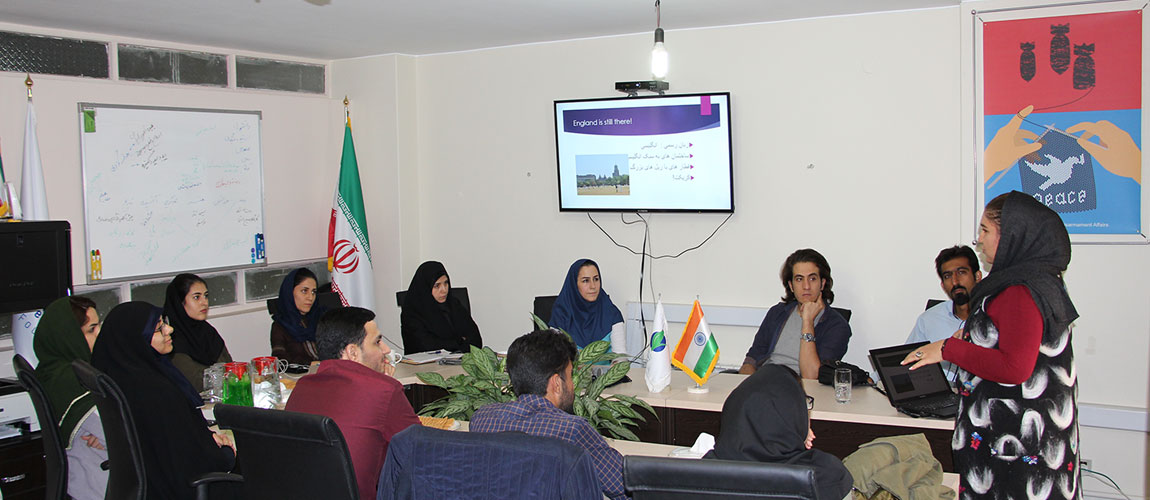Peace Sprit Foundation held another “Knowing Nations” session on India on 25 October in the presence of Mahsa Tahzibi, a volunteer who has spent one month in Indian schools.
She is currently is doing her of MA in Epidemiology in Tehran, a major she says she get into after her India experience.
Ms. Tahzibi started the session talking about her major and why she decided to go to India; “I wanted to be useful and helpful for people of my country and also people of the world but I had no idea how. Fortunately a program was introduced to me in India the aim of which was to keep the Indian rural children in touch with schools and education during summer. This trip changed my life.”

She started her presentation with a short video clip of her pictures from India, showing the diversity in the Asian country; “It was very interesting for me to see different people with different religions and cultures living together and respecting each other; Muslims and Buddhist were able to do their religious rituals together without insulting each other and the coexistence really inspired me.”
Moving to economic characteristics, Ms. Tahzibi underlined the significant economic inequality and social gap in India. “Indian people live the way it is and do not complain; the poor live beside very rich people without thinking about why that huge of sum of money belongs only to some; and there is a key clue about the way Indians live: they believe in reincarnation and hope to have a better life in their next lives,” she said.
Ms. Tahzibi further talked about rules and the way Indians respect them; “streets are crowded and noisy in an unbelievable way and horning is a tradition, which is originated from Mahatma Gandhi’s civil resistance methods against British occupiers.”
“One of the major issues in India is lack of health services and the condition of poor people living in slums suffering from hunger and dirty environment; they also receive no education and this is what influenced me to chose my MA major as epidemiology to help create better life conditions for societies,” she noted.

